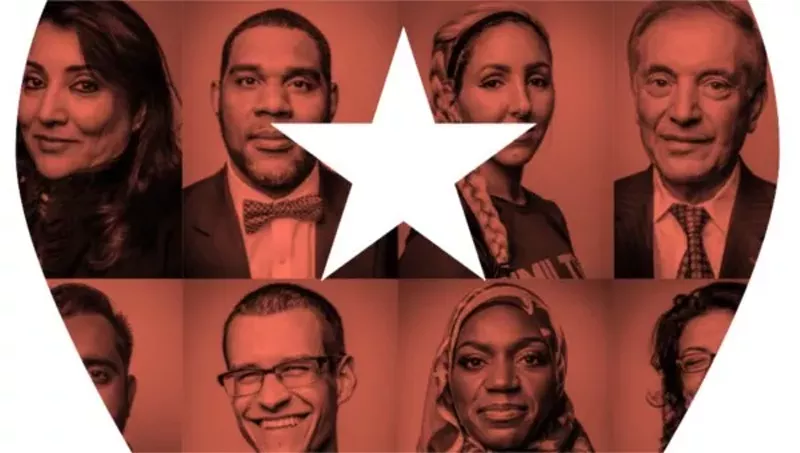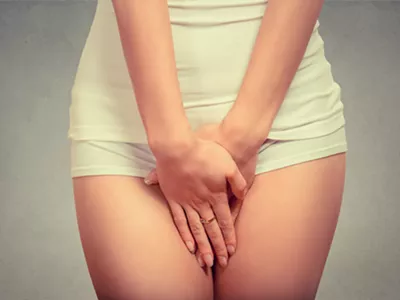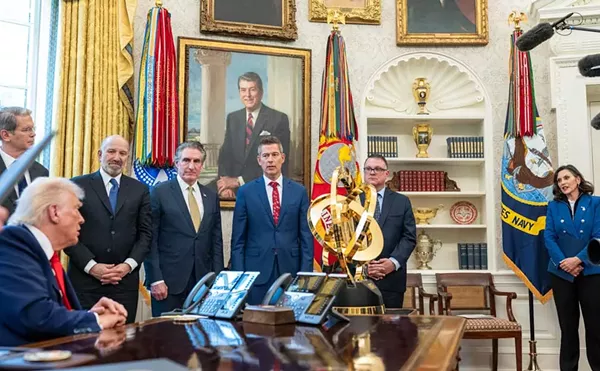
Audio By Carbonatix
[
{
"name": "GPT - Leaderboard - Inline - Content",
"component": "35519556",
"insertPoint": "5th",
"startingPoint": "3",
"requiredCountToDisplay": "3",
"maxInsertions": 100,
"adList": [
{
"adPreset": "LeaderboardInline"
}
]
}
]

Photo montage courtesy Institute for Social Policy and Understanding
A very special event this evening will showcase Muslim contributions to science.
Of course, if you know your history, it's no surprise that Muslim contributions to science are important and far-reaching. After all, while Europe was locked in its superstitious dark ages, science flowered in the new Muslim world, with researchers making great strides in mathematics, astronomy, and geography. Without Muslim scholars, we wouldn't have algebra, algorithms, or the number 0.
Of course, if you were to rely on mainstream television news to form your picture of the Muslim world, chances are you'd come to much different conclusions. Media content analysis reports that more than 80 percent of U.S. media coverage of Islam and Muslims is negative, and Hollywood movies invariably portray Muslims as backward-looking religious fundamentalists.
Of course, they're only able to get away with it because so few individual Americans are acquainted with a Muslim. It's easy to distort something you don't know much about.
And that's why this special event tonight is so important. The event, called Muslim Contributions to Science, takes place at the Michigan Science Center. Sponsored by the Institute for Social Policy and Understanding, researcher Rebecca Karam will present an impressive look at how Michigan Muslims have contributed to the scientific arts of medicine, engineering, and technology. Panelists will include Dr. Mahmood Hai and Dr. Ayesha Fatima, who'll discuss their careers in science and how Islam inspires them to work on behalf of all.
As organizers put it, “It is commonly said that we fear what we don’t understand. Living up to our American ideals requires us to understand our neighbors, our colleagues, and our friends despite our diverse backgrounds.”
Hopefully, this event will help that mission along.
Muslim Contributions to Science takes place 6-7 p.m. Nov. 15, at the Michigan Science Center, 5020 John R St., Detroit.





